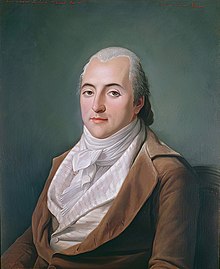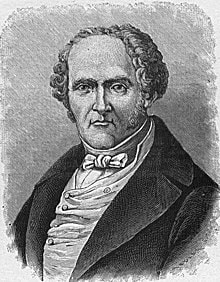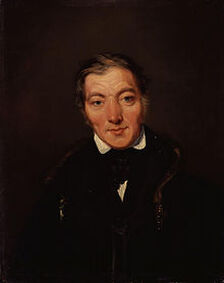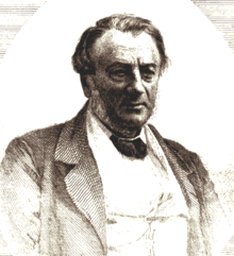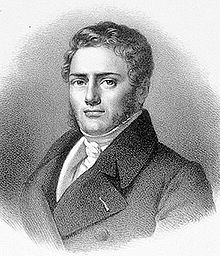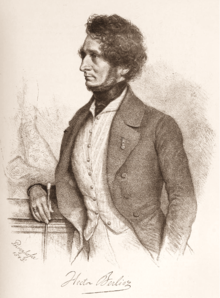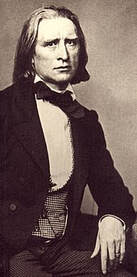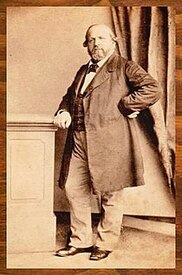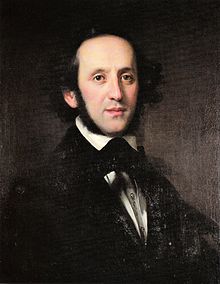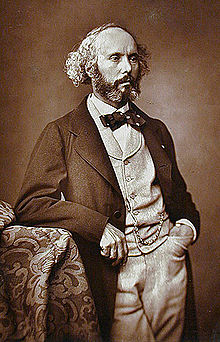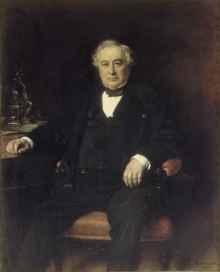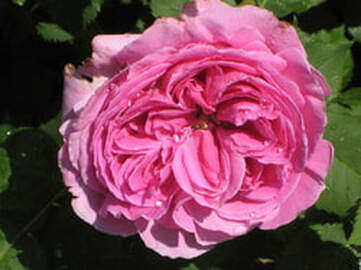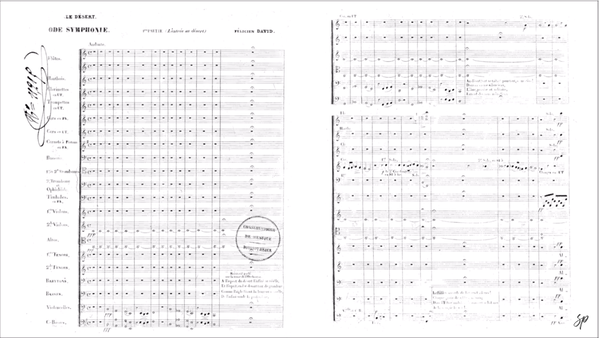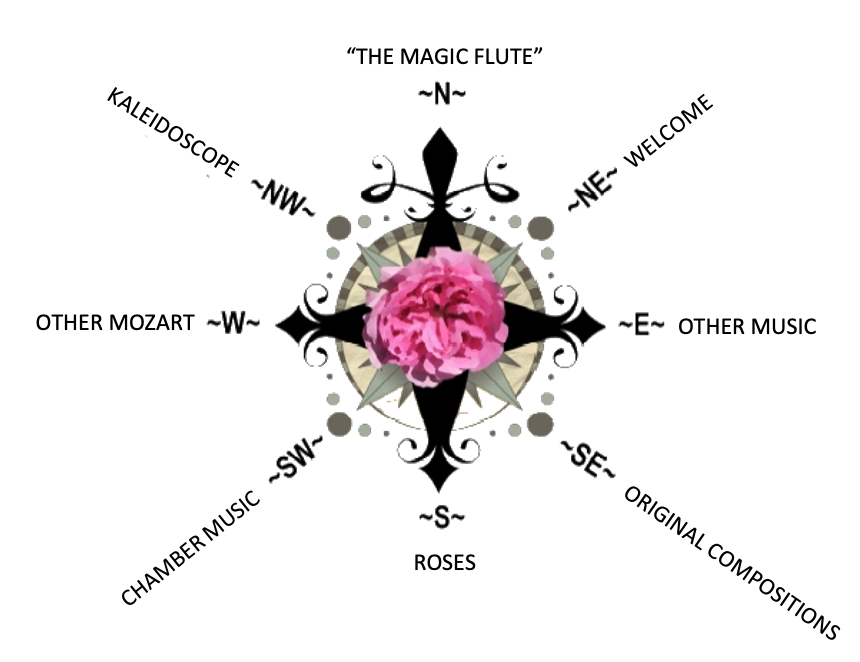- Home
- N - The Magic Flute
- NE - Welcome!
-
E - Other Music
- E - Music Genres >
- E - Composers >
-
E - Extended Discussions
>
- Allegri: Miserere
- Bach: Cantata 4
- Bach: Cantata 8
- Bach: Chaconne in D minor
- Bach: Concerto for Violin and Oboe
- Bach: Motet 6
- Bach: Passion According to St. John
- Bach: Prelude and Fugue in B-minor
- Bartok: String Quartets
- Brahms: A German Requiem
- David: The Desert
- Durufle: Requiem
- Faure: Cantique de Jean Racine
- Faure: Requiem
- Handel: Christmas Portion of Messiah
- Haydn: Farewell Symphony
- Liszt: Évocation à la Chapelle Sistine"
- Poulenc: Gloria
- Poulenc: Quatre Motets
- Villa-Lobos: Bachianas Brazilieras
- Weill
-
E - Grace Woods
>
- Grace Woods: 4-29-24
- Grace Woods: 2-19-24
- Grace Woods: 1-29-24
- Grace Woods: 1-8-24
- Grace Woods: 12-3-23
- Grace Woods: 11-20-23
- Grace Woods: 10-30-23
- Grace Woods: 10-9-23
- Grace Woods: 9-11-23
- Grace Woods: 8-28-23
- Grace Woods: 7-31-23
- Grace Woods: 6-5-23
- Grace Woods: 5-8-23
- Grace Woods: 4-17-23
- Grace Woods: 3-27-23
- Grace Woods: 1-16-23
- Grace Woods: 12-12-22
- Grace Woods: 11-21-2022
- Grace Woods: 10-31-2022
- Grace Woods: 10-2022
- Grace Woods: 8-29-22
- Grace Woods: 8-8-22
- Grace Woods: 9-6 & 9-9-21
- Grace Woods: 5-2022
- Grace Woods: 12-21
- Grace Woods: 6-2021
- Grace Woods: 5-2021
- E - Trinity Cathedral >
- SE - Original Compositions
- S - Roses
-
SW - Chamber Music
- 12/93 The Shostakovich Trio
- 10/93 London Baroque
- 3/93 Australian Chamber Orchestra
- 2/93 Arcadian Academy
- 1/93 Ilya Itin
- 10/92 The Cleveland Octet
- 4/92 Shura Cherkassky
- 3/92 The Castle Trio
- 2/92 Paris Winds
- 11/91 Trio Fontenay
- 2/91 Baird & DeSilva
- 4/90 The American Chamber Players
- 2/90 I Solisti Italiana
- 1/90 The Berlin Octet
- 3/89 Schotten-Collier Duo
- 1/89 The Colorado Quartet
- 10/88 Talich String Quartet
- 9/88 Oberlin Baroque Ensemble
- 5/88 The Images Trio
- 4/88 Gustav Leonhardt
- 2/88 Benedetto Lupo
- 9/87 The Mozartean Players
- 11/86 Philomel
- 4/86 The Berlin Piano Trio
- 2/86 Ivan Moravec
- 4/85 Zuzana Ruzickova
-
W - Other Mozart
- Mozart: 1777-1785
- Mozart: 235th Commemoration
- Mozart: Ave Verum Corpus
- Mozart: Church Sonatas
- Mozart: Clarinet Concerto
- Mozart: Don Giovanni
- Mozart: Exsultate, jubilate
- Mozart: Magnificat from Vesperae de Dominica
- Mozart: Mass in C, K.317 "Coronation"
- Mozart: Masonic Funeral Music,
- Mozart: Requiem
- Mozart: Requiem and Freemasonry
- Mozart: Sampling of Solo and Chamber Works from Youth to Full Maturity
- Mozart: Sinfonia Concertante in E-flat
- Mozart: String Quartet No. 19 in C major
- Mozart: Two Works of Mozart: Mass in C and Sinfonia Concertante
- NW - Kaleidoscope
- Contact
GRACE WOODS MUSIC SESSION: MAY 3, 5, 7, 2021
The Desert by Félicien-César David
By Judith Eckelmeyer
Henri, Comte de Saint-Simon, was a French “philosopher, social activist, and political reformer” who died in 1825. The movement bearing his name was founded that year by his followers. Saint-Simon believed science should improve the human condition; that the leadership of society should be based on intellectual power and creativity; that women should be emancipated; that wealth should be distributed equitably according to each individual’s contribution to society; and that a new religion should be founded on the present, not the “hereafter”.
The Saint-Simonian Movement (a very truncated summary) was established in 1825 by Saint-Simon’s followers, but declined about 1835. This was a utopian socialist movement aimed at reform in aid of the urban working class and unemployed in Paris, and progress in the betterment of the human condition, to achieve a “new world”. (Two other contemporary utopian movements were established about the same time: one by Charles Fourier for agricultural communities; this was later adopted by the Transcendentalists for Brook Farm. A second was established by Robert Owens to support manufacturing in Scotland, and was taken up at New Harmony, Indiana.)
Over the course of the decade of development, the Saint-Simonians formalized their organization and in 1830 published informational pamphlets intended to explain their belief system (which they unsuccessfully attempted to have governmentally approved as a religion) to the public and to recruit new members. Both men and women joined, although the leaders were inevitably men. (See below.)
Among the unorthodox ideas they espoused were that society should be led by a “social hierarchy” consisting of scientists, industrial workers, and “priests or governors”; artists, including musicians, were to be agents of the priest. By 1830 there were four grades of membership headed by “Supreme Fathers”, Barthélemy-Prosper Enfantin and Saint-Armand Bazard. A second unorthodoxy of the society concerned the role of women, who they believed should hold an equal place with men in society, not subordinated to or dependent on them, and that God was both male and female. The number of female recruits increased greatly between 1832 and 1835
Among the unorthodox ideas they espoused were that society should be led by a “social hierarchy” consisting of scientists, industrial workers, and “priests or governors”; artists, including musicians, were to be agents of the priest. By 1830 there were four grades of membership headed by “Supreme Fathers”, Barthélemy-Prosper Enfantin and Saint-Armand Bazard. A second unorthodoxy of the society concerned the role of women, who they believed should hold an equal place with men in society, not subordinated to or dependent on them, and that God was both male and female. The number of female recruits increased greatly between 1832 and 1835
Related to the inclusion of women were the issues of marriage and celibacy. Enfantin, by the end of 1830 sole head of the society, propounded the view that monogamy was fine for those who wanted it, but others should be free to change mates once bonds of affection were spent, thus having sequential marriages and divorces. In addition, to keep a “lid” on unbridled license, the Priest (Father) should have a companion Priestess, both of whom would guide the choices of those entering new sexual relationships. Ultimately, the concepts of Priest and Priestess developed into an extention of the Priestess into a “Female Messiah” who would join Enfantin in leading the society. The search for The Woman led to a pilgrimage of members to the “Orient”, i.e., the Middle East. (See below.)
The group sold bonds to raise money for their residence in Paris and, later, just at the fringe of the City, where the all-male members lived a monastic existence. The formal rituals they had developed around all their activities were performed by members dressed in their specially designed uniforms to the accompaniment of songs and choruses composed by the in-house composer, David. In the 1830s a few rituals were performed outdoors and open to public viewing. Curious crowds of thousands gathered to observe the rituals.
A number of famous composers of the time were drawn to the Saint-Simonians in varying degrees of intensity. Hector Berlioz was an especially interested on the social message of the society and a fervid supporter of David’s music. Franz Liszt was attracted by the idea of the role of the artist in the new society. Ferdinand Hiller showed considerable interest in the group around 1828 to about 1832. During his months in Paris, Felix Mendelssohn met members of the society and learned of their beliefs and activities but his correspondence with his family shows decided disparagement and shock at their ideas. In the end, both the society’s perceived libertinism of the society, suspicion about fraud in their selling bonds, and the disruption of caused by crowds beyond the permitted number of 20 prompted authorities to arrest Enfantin and ultimately, as members left, the society dwindled in disrepute.
The group sold bonds to raise money for their residence in Paris and, later, just at the fringe of the City, where the all-male members lived a monastic existence. The formal rituals they had developed around all their activities were performed by members dressed in their specially designed uniforms to the accompaniment of songs and choruses composed by the in-house composer, David. In the 1830s a few rituals were performed outdoors and open to public viewing. Curious crowds of thousands gathered to observe the rituals.
A number of famous composers of the time were drawn to the Saint-Simonians in varying degrees of intensity. Hector Berlioz was an especially interested on the social message of the society and a fervid supporter of David’s music. Franz Liszt was attracted by the idea of the role of the artist in the new society. Ferdinand Hiller showed considerable interest in the group around 1828 to about 1832. During his months in Paris, Felix Mendelssohn met members of the society and learned of their beliefs and activities but his correspondence with his family shows decided disparagement and shock at their ideas. In the end, both the society’s perceived libertinism of the society, suspicion about fraud in their selling bonds, and the disruption of caused by crowds beyond the permitted number of 20 prompted authorities to arrest Enfantin and ultimately, as members left, the society dwindled in disrepute.
Félicien-César David (1810-1876) grew to adulthood during the immediate aftermath of the activities of Saint-Simon. David joined the movement in 1832 under the leadership of Saint-Simon’s charismatic successor, Barthélemy-Prosper Enfantin, who was called Le Père, the Father. David whole-heartedly served the movement as its composer and wrote numerous pieces that extolled the messages and accompanied the routine activities of the movement. In 1833 David left France with other members of the movement on a pilgrimage to the Middle-East to find “The Mother”, who would be the companion to Enfantin and complete the “godhead” as the “Female Messiah” in the world of here and now. An outbreak of cholera forced David and others to return to France only two years later. However, David’s experience of the sights and sounds of the Near East informed his keyboard improvisations (which he turned into a series of piano miniatures) and larger works, notably the wildly successful Symphonic Ode, Le Desert. [Two books to seek for further information on David and the Saint-Simonians: Dorothy Veinus Hagan’s Félicien David, 1810-1876, Syracuse University Press, 1985; and Ralph P. Locke’s Music, Musicians, and the Saint-Simonians, University of Chicago Press, 1986.]
Isaac Pereire (Nov. 25, 1806-1880) was the husband of the unnamed wife who is the namesake of a beautiful, fragrant magenta rose. One piece of information available about her is that about the turn of the century, after one of her children was cured of a devastating illness, she began providing financial support to the hospital that saved the child. Much more is known about Isaac. He was a wealthy Parisian banker who gave financial support to the socialist/utopian Saint-Simonian movement from the late 1840s to the early 1860s. Leaving his home district of Bordeaux, with his brother Émile he went into banking. They financed the building of the first railway in France, Paris to St.-Germain, in 1835, and in 1836 another line to Versailles, and 1845 a line to the North of France. In 1852 they established the Société Général du Crédit Mobilier—an investment bank (probably the very first), to underwrite railway building in France, Switzerland, Russia and Spain—and founded gas and bus companies. Their bank was forced to liquidate in 1867. Isaac, Émile, and Isaac’s son Eugène, became active in the legislature after that. Isaac also owned a Paris daily newspaper from 1876 to 1889, and used it to publicize his political and industrial ideas. He wrote a number of works on industry, finance and religion.
THE DESERT (Le Désert) (1844), music by David
Symphonic Ode for Speaker, Male Chorus, and Orchestra
Text: Auguste Colin Translation: Lionel Salter
Text: Auguste Colin Translation: Lionel Salter
Part I:
Entry into the desert. Speaker: In the look of the desert infinity is revealed, and the spirit, exalted before such grandeur, probes the depths of the infinite like the eagle gazing at the new light. In the desert all is silent; and yet, O mystery, in this noiseless calm the soul, pensive and solitary, hears melodious sounds. Ineffable chords of eternal silence! Each grain of sand has its voice, the concert sways in the ether’s waves; I feel it, I see it!
Song of the desert. Glorification of Allah. Allah! To thee I do homage, of thy immensity, of thy eternity I am the living image. Allah, thou alone art harmony, thou alone art discord; thou alone art glorious and merciful, thou alone dost give life, thou alone dost give death. Allah, Allah. Praise to thee, Sovereign of the world, praise in the immensity; for my profound solitudes are full of Thy majesty. Allah!
Appearance of the caravan. Speaker: What is this point in space that appears and vanishes in turn? On the horizon the caravan is passing, a gigantic serpent, embracing the radiant outline of the skies. The slow caravan winds on breathlessly, and will pitch its tent at close of day.
Progress of the caravan. Come! Let us trot, make our way, sing, go gaily and in freedom! In the air so pure, in this azure sky, we fill our lungs with breath.
Storm in the desert. Speaker: The air, heavy and motionless, becomes livid like a dying man’s face; here comes the turbulent whirlwind with its arid and destructive breath! Chorus: Bow your heads! The simoon, the wind of fire, is passing like a scourge from God. Allah! Have pity on thy faithful! Allah! Support our fervent hearts! The sky is no more—Allah, Allah! Hell is upon us! Lord of the universe, thou seest our distress. The Angel of Death hovers over our heads! Against these storms there is no shelter. O sovereign judge, despite our faith our sole refuge is the grave or thee.
Calm returns and the caravan resumes its progress. Life here is a harsh combat, but nothing daunts us, neither the burning dust nor the heat nor the labor. We are strong, and by our efforts we tame heaven and earth, we fight and we triumph over all of Nature! Come, let us trot, make our way, sing, go gaily and in freedom! In the air so pure, in this azure sky, we fill our lungs with breath. Come let us be on our way, trot, arrive and sing; we’ll pass beyond these horizons of mystery.
Part II:
The Star of Venus. Speaker: Like a fiancée’s veil, night falls on the face of the desert. Our heart is open to the charms of the night when Venus is brilliantly launched into the stars.
Hymn to the night. O night, O lovely night! Your freshness rejoices us when, after prayer, the whole caravan rests, dreaming, on the moving sand. O night, O lovely night! Your freshness rejoices us; as a loved maiden gratifies love’s waiting, you calm the day’s devouring ardor. O night, O sweet night! O night, O lovely night! Your freshness rejoices us when the air filed with aroma the almée (dancing girl) undulates to the sound of the tarabouka (barrel-drum) like smoke from a chibouki (long straight-stemmed pipe).
Arabian fantasy. Dance of the Almées. (Instrumental movements)
Liberty in the desert. Remain in your tombs of stone, pale inhabitants of cities, without seeing the majestic beauties of the sky or the earth. There, your existence is withered by troubles and remorse. The desert is our homeland; we are free, proud and strong. For us, sun and space, dazzling mirage, the passing cloud, the panting steed, the sparkling sands and the desert for pillow, the stars that shine and watch us as we sleep.
Reverie at evening. My lovely night, oh pass more slowly! Yes, you make me love and live. Oh night, while my voice sings, my beloved becomes drunk with love. Glide on noiselessly, bright moon! I do not wish to follow you to the sky; here, while my voice sings, my beloved becomes drunk with love. But my languid eyelids are already yielding to sweet sleep, and when my voice dies away my beloved becomes drunk with love.
Part III:
Sunrise. Speaker: The floor of heaven is colored with rosy tints of dawn; the orb of day suddenly beams like a sonorous hymn, and fills the desert with light and love.
The call of the muezzin [Adhan]. Peace to you. Allah is most great. There is but one God, and Mohammed is the messenger of God. (This is an inauthentic representation of an Adhan, probably only David’s best recollection.)
The caravan resumes its progress. Come, let us leave, companions, let us be on our way and cross the horizons in the bosom of the solitary desert. Let us keep on, the days are long and heavy, and life is bitter; let us go on and seek the heart of this profound mystery! Come, let us trot, make our way, sing, go gaily in freedom! In the air so pure, in this azure sky, we fill our lungs with breath.
The caravan disappears into the distance. Speaker: The peregrinating city is lost in the distance: it vanishes, it is seen to disappear like a morning mist; and, again becoming master of the desert, the eternal silence that only the soul hears stretches motionless on its couch of sand. Ineffable chords of eternal silence! Each grain of sand has its voice, the concert sways in the ether’s waves; I feel it, I see it!
The song of the desert. Glorification of Allah. (See Part I, Praise to thee, sovereign of the worlds)
Entry into the desert. Speaker: In the look of the desert infinity is revealed, and the spirit, exalted before such grandeur, probes the depths of the infinite like the eagle gazing at the new light. In the desert all is silent; and yet, O mystery, in this noiseless calm the soul, pensive and solitary, hears melodious sounds. Ineffable chords of eternal silence! Each grain of sand has its voice, the concert sways in the ether’s waves; I feel it, I see it!
Song of the desert. Glorification of Allah. Allah! To thee I do homage, of thy immensity, of thy eternity I am the living image. Allah, thou alone art harmony, thou alone art discord; thou alone art glorious and merciful, thou alone dost give life, thou alone dost give death. Allah, Allah. Praise to thee, Sovereign of the world, praise in the immensity; for my profound solitudes are full of Thy majesty. Allah!
Appearance of the caravan. Speaker: What is this point in space that appears and vanishes in turn? On the horizon the caravan is passing, a gigantic serpent, embracing the radiant outline of the skies. The slow caravan winds on breathlessly, and will pitch its tent at close of day.
Progress of the caravan. Come! Let us trot, make our way, sing, go gaily and in freedom! In the air so pure, in this azure sky, we fill our lungs with breath.
Storm in the desert. Speaker: The air, heavy and motionless, becomes livid like a dying man’s face; here comes the turbulent whirlwind with its arid and destructive breath! Chorus: Bow your heads! The simoon, the wind of fire, is passing like a scourge from God. Allah! Have pity on thy faithful! Allah! Support our fervent hearts! The sky is no more—Allah, Allah! Hell is upon us! Lord of the universe, thou seest our distress. The Angel of Death hovers over our heads! Against these storms there is no shelter. O sovereign judge, despite our faith our sole refuge is the grave or thee.
Calm returns and the caravan resumes its progress. Life here is a harsh combat, but nothing daunts us, neither the burning dust nor the heat nor the labor. We are strong, and by our efforts we tame heaven and earth, we fight and we triumph over all of Nature! Come, let us trot, make our way, sing, go gaily and in freedom! In the air so pure, in this azure sky, we fill our lungs with breath. Come let us be on our way, trot, arrive and sing; we’ll pass beyond these horizons of mystery.
Part II:
The Star of Venus. Speaker: Like a fiancée’s veil, night falls on the face of the desert. Our heart is open to the charms of the night when Venus is brilliantly launched into the stars.
Hymn to the night. O night, O lovely night! Your freshness rejoices us when, after prayer, the whole caravan rests, dreaming, on the moving sand. O night, O lovely night! Your freshness rejoices us; as a loved maiden gratifies love’s waiting, you calm the day’s devouring ardor. O night, O sweet night! O night, O lovely night! Your freshness rejoices us when the air filed with aroma the almée (dancing girl) undulates to the sound of the tarabouka (barrel-drum) like smoke from a chibouki (long straight-stemmed pipe).
Arabian fantasy. Dance of the Almées. (Instrumental movements)
Liberty in the desert. Remain in your tombs of stone, pale inhabitants of cities, without seeing the majestic beauties of the sky or the earth. There, your existence is withered by troubles and remorse. The desert is our homeland; we are free, proud and strong. For us, sun and space, dazzling mirage, the passing cloud, the panting steed, the sparkling sands and the desert for pillow, the stars that shine and watch us as we sleep.
Reverie at evening. My lovely night, oh pass more slowly! Yes, you make me love and live. Oh night, while my voice sings, my beloved becomes drunk with love. Glide on noiselessly, bright moon! I do not wish to follow you to the sky; here, while my voice sings, my beloved becomes drunk with love. But my languid eyelids are already yielding to sweet sleep, and when my voice dies away my beloved becomes drunk with love.
Part III:
Sunrise. Speaker: The floor of heaven is colored with rosy tints of dawn; the orb of day suddenly beams like a sonorous hymn, and fills the desert with light and love.
The call of the muezzin [Adhan]. Peace to you. Allah is most great. There is but one God, and Mohammed is the messenger of God. (This is an inauthentic representation of an Adhan, probably only David’s best recollection.)
The caravan resumes its progress. Come, let us leave, companions, let us be on our way and cross the horizons in the bosom of the solitary desert. Let us keep on, the days are long and heavy, and life is bitter; let us go on and seek the heart of this profound mystery! Come, let us trot, make our way, sing, go gaily in freedom! In the air so pure, in this azure sky, we fill our lungs with breath.
The caravan disappears into the distance. Speaker: The peregrinating city is lost in the distance: it vanishes, it is seen to disappear like a morning mist; and, again becoming master of the desert, the eternal silence that only the soul hears stretches motionless on its couch of sand. Ineffable chords of eternal silence! Each grain of sand has its voice, the concert sways in the ether’s waves; I feel it, I see it!
The song of the desert. Glorification of Allah. (See Part I, Praise to thee, sovereign of the worlds)
Judith Eckelmeyer ©2021
Choose Your Direction
The Magic Flute, II,28.

